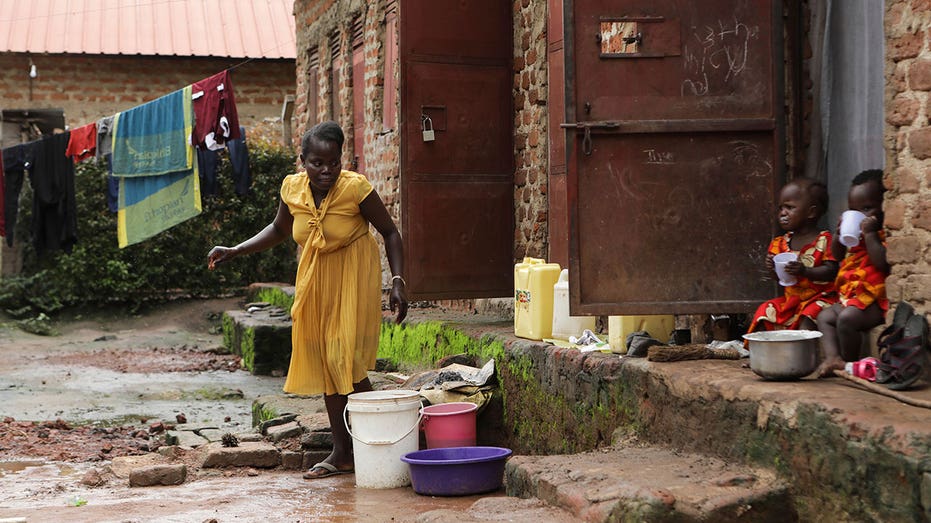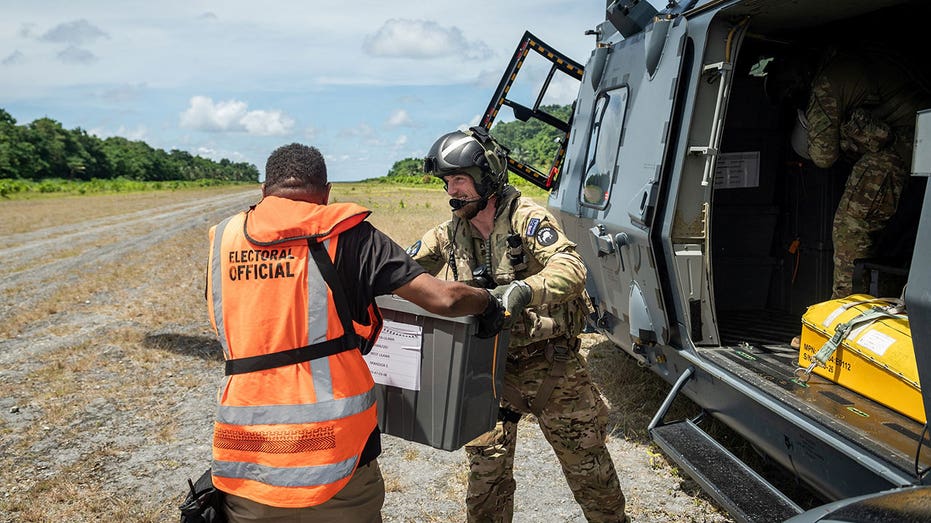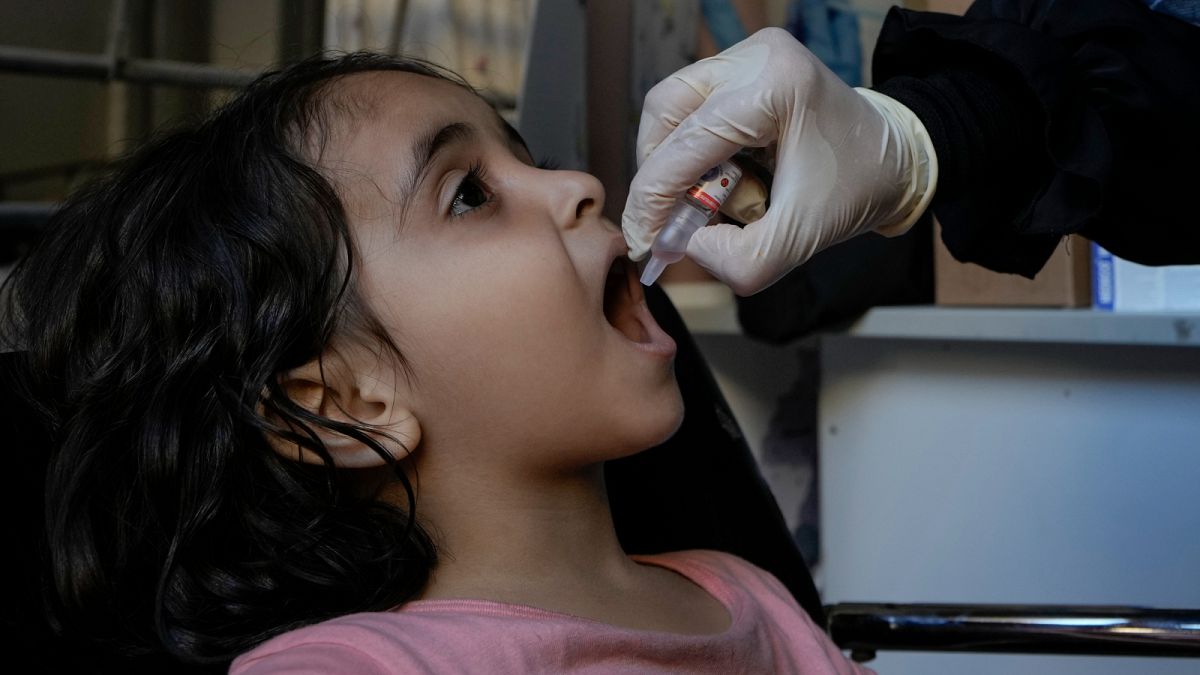Sickle cell patient offers hope to Ugandan community where disease is prevalent
A Ugandan woman who has directly confronted the challenges of living with sickle cell disease has converted her personal journey into advocacy, she says.

Barbara Nabulo was one of three girls in her family. But when a sister died, her mother wailed at the funeral that she was left with just one and a half daughters.
The half was the ailing Nabulo, who at age 12 grasped her mother’s meaning.
"I hated myself so much," Nabulo said recently, recalling the words that preceded a period of sickness that left her hospitalized and feeding through a tube.
‘REMARKABLE’ GENE-EDITING TREATMENT FOR SICKLE CELL DISEASE IS APPROVED BY FDA
The scene underscores the lifelong challenges for some people with sickle cell disease in rural Uganda, where it remains poorly understood. Even Nabulo, despite her knowledge of how the disease weakens the body, spoke repeatedly of "the germ I was born with."
Sickle cell disease is a group of inherited disorders in which red blood cells — normally round — become hard, sticky and crescent shaped. The misshapen cells clog the flow of blood, which can lead to infections, excruciating pain, organ damage and other complications.
The disease, which can stunt physical growth, is more common in malaria-prone regions, notably Africa and India, because carrying the sickle cell trait helps protect against severe malaria. Global estimates of how many people have the disease vary, but some researchers put the number between 6 million and 8 million, with more than 5 million living in sub-Saharan Africa.
The only cure for the pain sickle cell disease can cause is a bone marrow transplant or gene therapies like the one commercially approved by the U.S. Food and Drug Administration in December. A 12-year-old boy last week became the first person to begin the therapy.
Those options are beyond the reach of most patients in this East African nation where sickle cell disease is not a public health priority despite the burden it places on communities. There isn’t a national database of sickle cell patients. Funding for treatment often comes from donor organizations.
In a hilly part of eastern Uganda that’s a sickle cell hot spot, the main referral hospital looks after hundreds of patients arriving from nearby villages to collect medication. Many receive doses of hydroxyurea, a drug that can reduce periods of severe pain and other complications, and researchers there are studying its effectiveness in Ugandan children.
Nabulo, now 37, is one of the hospital's patients. But she approaches others like her as a caregiver, too.
After dropping out in primary school, she has emerged in recent years as a counselor to fellow patients, speaking to them about her survival. Encouraged by hospital authorities, she makes weekly visits to the ward that has many children watched over by exhausted-looking parents.
Nabulo tells them she was diagnosed with sickle cell disease at two weeks old, but now she is the mother of three children, including twins.
Such a message gives hope to those who feel discouraged or worry that sickle cell disease is a death sentence, said Dr. Julian Abeso, head of pediatrics at Mbale Regional Referral Hospital.
Some men have been known to divorce their wives — or neglect them in search of new partners — when they learn that their children have sickle cell disease. Frequent community deaths from disease complications reinforce perceptions of it as a scourge.
BONE MARROW TRANSPLANTS CAN REVERSE ADULT SICKLE CELL DISEASE
Nabulo and health workers urge openness and the testing of children for sickle cell as early as possible.
Abeso and Nabulo grew close after Nabulo lost her first baby hours after childbirth in 2015. She cried in the doctor's office as she spoke of her wish "to have a relative I can call mine, a descendant who can help me," Abeso recalled.
"At that time, people here were so negative about patients with sickle cell disease having children because the complications would be so many," the doctor said.
Nabulo’s second attempt to have a child was difficult, with some time in intensive care. But her baby is now a 7-year-old boy who sometimes accompanies her to the hospital. The twin girls came last year.
Speaking outside the one-room home she shares with her husband and children, Nabulo said many people appreciate her work despite the countless indignities she faces, including unwanted stares from people in the streets who point to the woman with "a big head," one manifestation in her of the disease. Her brothers often behave as if they are ashamed of her, she said.
Once, she heard of a girl in her neighborhood whose grandmother was making frequent trips to the clinic over an undiagnosed illness in the child. The grandmother was hesitant to have the girl tested for sickle cell when Nabulo first asked her. But tests later revealed the disease, and now the girl receives treatment.
"I go to Nabulo for help because I can’t manage the illness affecting my grandchild," Kelemesiya Musuya said. "She can feel pain, and she starts crying, saying, ‘It is here and it is rising and it is paining here and here.'"
Musuya sometimes seeks reassurance. "She would be asking me, ‘Even you, when you are sick, does it hurt in the legs, in the chest, in the head?’ I tell her that, yes, it’s painful like that," Nabulo said.
Nabulo said she was glad that the girl, who is 11, still goes to school.
The lack of formal education is hurtful for Nabulo, who struggles to write her name, and a source of shame for her parents, who repeatedly apologize for letting her drop out while her siblings studied. One brother is now a medical worker who operates a clinic in a town not far away from Nabulo's home
"I am very happy to see her," said her mother, Agatha Nambuya.
She recalled Nabulo’s swelling head and limbs as a baby, and how "these children used to die so soon."
But now she knows of others with sickle cell disease who grew to become doctors or whatever they wanted to be. She expressed pride in Nabulo’s work as a counselor and said her grandchildren make her feel happy.
"At that time," she said, recalling Nabulo as a child, "we didn’t know."
What's Your Reaction?
















